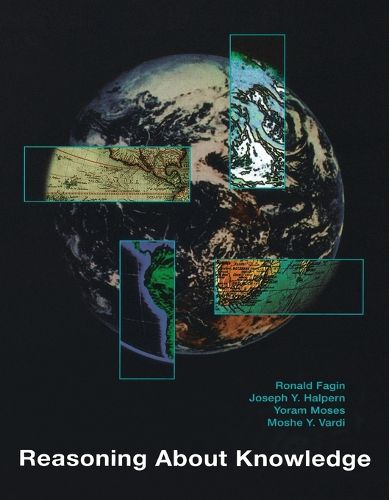Readings Newsletter
Become a Readings Member to make your shopping experience even easier.
Sign in or sign up for free!
You’re not far away from qualifying for FREE standard shipping within Australia
You’ve qualified for FREE standard shipping within Australia
The cart is loading…






Reasoning about knowledge - particularly the knowledge of agents who reason about the world and each other’s knowledge - was once the exclusive province of philosophers and puzzle solvers. More recently, this type of reasoning has been shown to play a key role in a surprising number of contexts, from understanding conversations to the analysis of distributed computer algorithms. Reasoning About Knowledge provides a general discussion of approaches to reasoning about knowledge and its applications to distributed systems, artificial intelligence, and game theory. It brings eight years of work by the authors into a cohesive framework for understanding and analyzing reasoning about knowledge that is intuitive, mathematically well founded, useful in practice, and widely applicable. The book is almost completely self-contained and should be accessible to readers in a variety of disciplines, including computer science, artificial intelligence, linguistics, philosophy, cognitive science, and game theory. Each chapter includes exercises and bibliographic notes.
$9.00 standard shipping within Australia
FREE standard shipping within Australia for orders over $100.00
Express & International shipping calculated at checkout
Reasoning about knowledge - particularly the knowledge of agents who reason about the world and each other’s knowledge - was once the exclusive province of philosophers and puzzle solvers. More recently, this type of reasoning has been shown to play a key role in a surprising number of contexts, from understanding conversations to the analysis of distributed computer algorithms. Reasoning About Knowledge provides a general discussion of approaches to reasoning about knowledge and its applications to distributed systems, artificial intelligence, and game theory. It brings eight years of work by the authors into a cohesive framework for understanding and analyzing reasoning about knowledge that is intuitive, mathematically well founded, useful in practice, and widely applicable. The book is almost completely self-contained and should be accessible to readers in a variety of disciplines, including computer science, artificial intelligence, linguistics, philosophy, cognitive science, and game theory. Each chapter includes exercises and bibliographic notes.